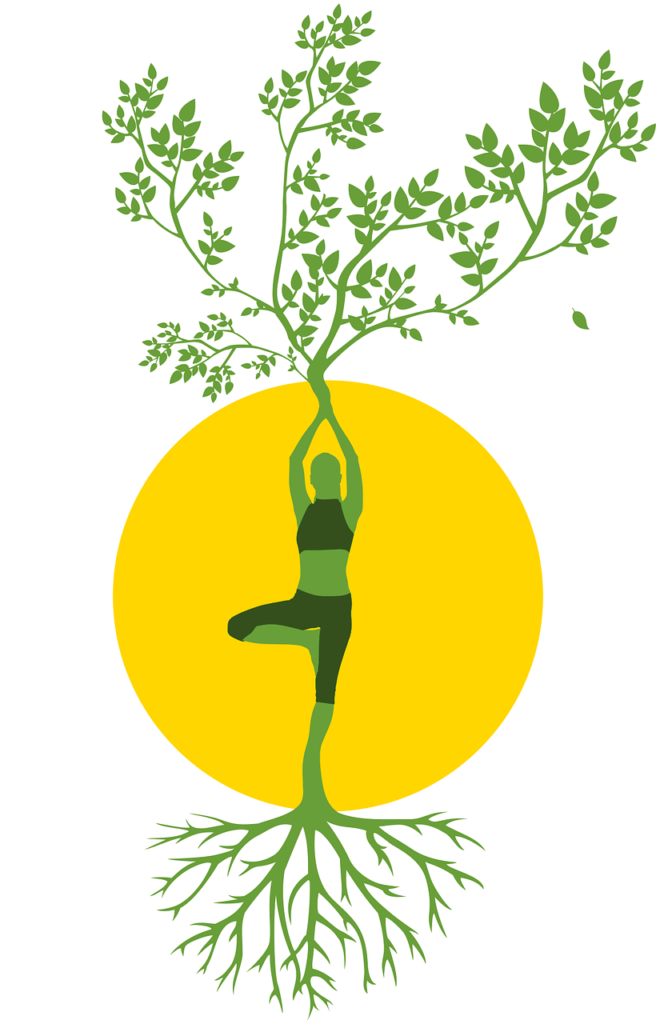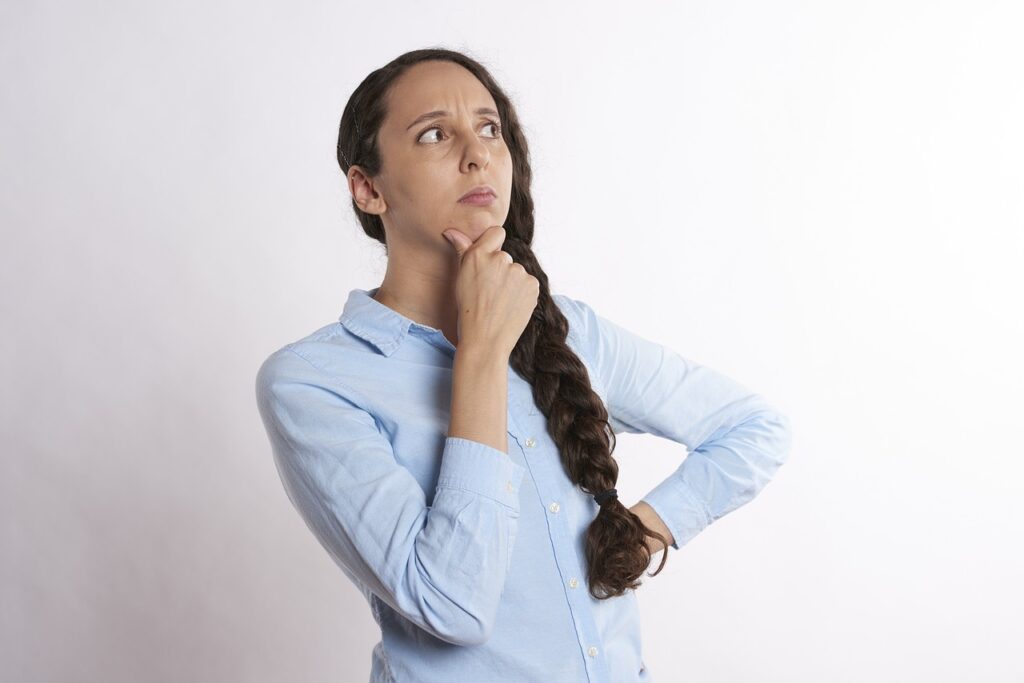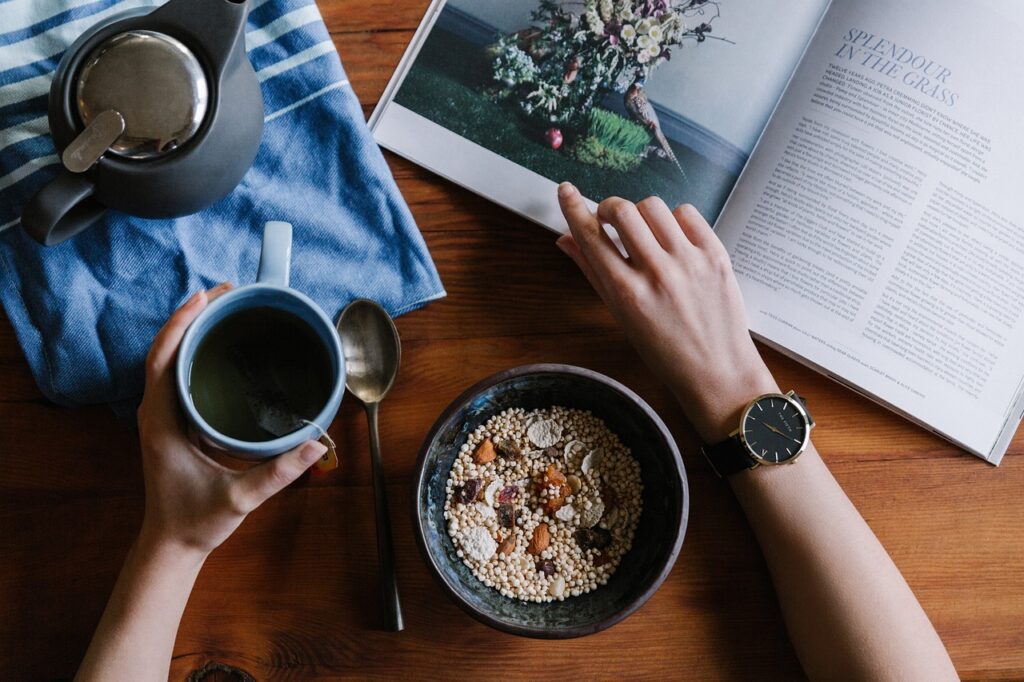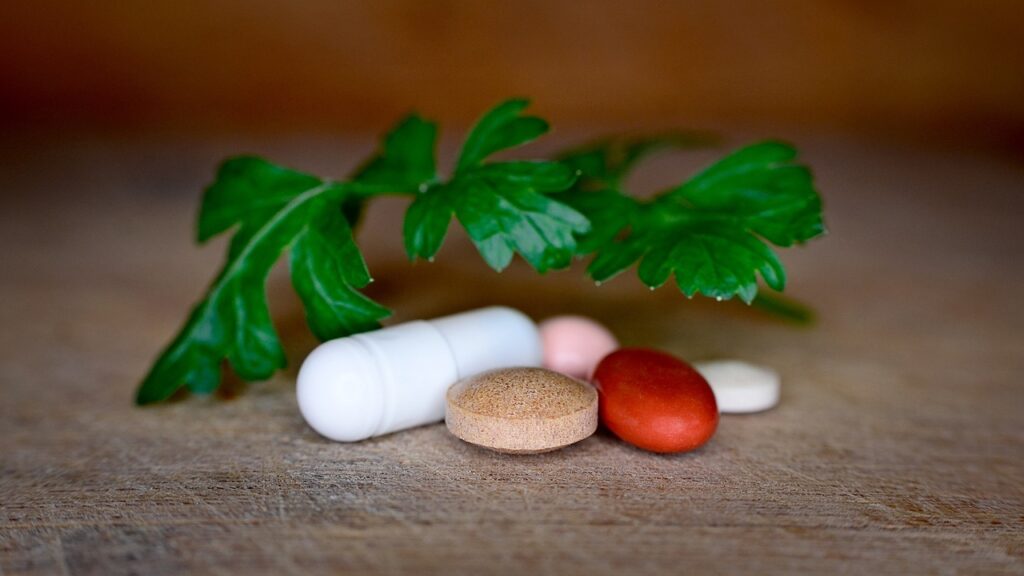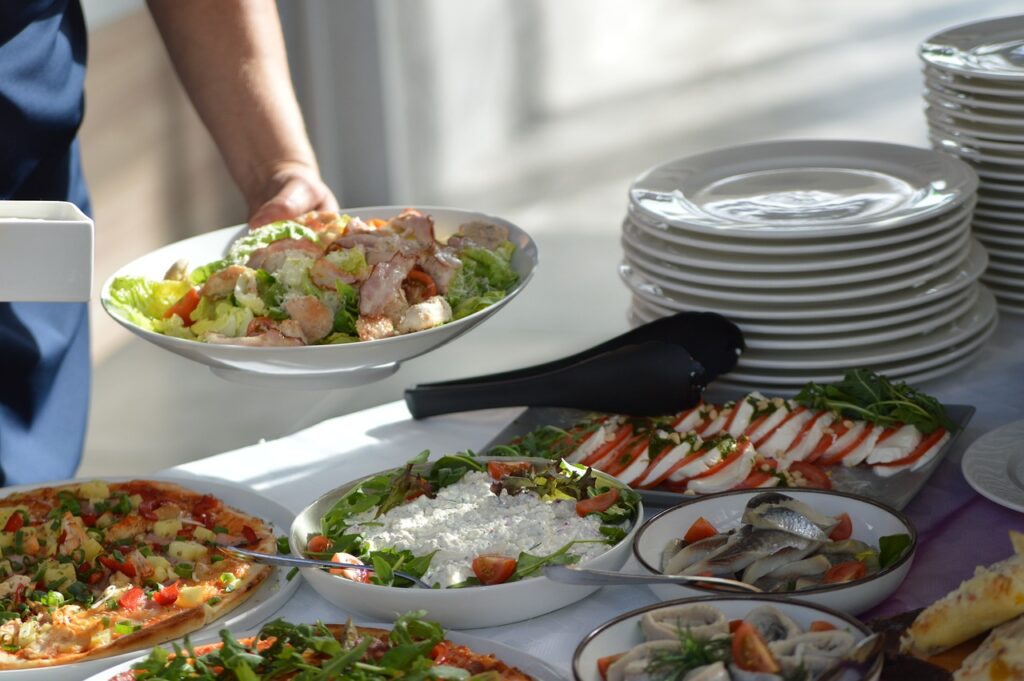Before going vegan, I never paid much attention to the nutritional value of the foods I was eating.
I guess you can say I was an “intuitive eater”, but in reality, I just ate more for fun than for function. I was living to eat, rather than eating to live.
But when I made the decision to eat vegan, things changed.
I started reading all of these articles about how vegans were at risk of nutritional deficiency since they were eliminating animal-based vitamins and minerals that aren’t super plentiful on a vegan diet.
My mom would echo the same thing, convincing me that if I didn’t eat meat, then I would always be “cold” from the lack of protein in my diet. And I, myself, had some stereotypical thoughts about vegans being unhealthy, emaciated people who lacked muscles from eating vegetables all day.
But I was determined to prove my mom, myself, and all of these Google-searched articles wrong. I was going to do vegan “the right way” and do everything I could to ensure that I was eating the proper foods to replace the nutrition I used to get from animal-based sources.
After 3 years of vegan eating, my determination is paying off. My blood work shows that I am getting the proper nutrition on a vegan diet, all without the use of supplement pills.
So here, I’ll share with you the top 5 micro and macronutrients that vegans tend to be deficient in–protein, iron, vitamin B12, calcium, and vitamin D–, and how I have managed to combat that deficiency through a vegan diet.
We’ll first tackle the elephant in the room: protein.
#1: Protein
There is a common misconception out there that vegans don’t get enough protein in their diet.
I think that’s because when people think of a vegan diet, they think of just eating fruits and vegetables which are not known for its protein content.
Rightfully so–the probably 1% of protein content in fruits and vegetables cannot compare to that of straight animal meat, which is pretty much 100% protein.
Nonetheless, there are high-protein sources of vegan foods out there, and I eat a wide range of them to get 80-90 grams of vegan protein a day. That’s about double the 46 grams of protein that is recommended for adult women–Double!
So what do I eat to get all of this protein? Here’s a screenshot of my top 10 sources of protein from just yesterday’s meal alone (which actually exceeded my target 80-90 grams of protein):

Basically, I eat a mixture of the following foods to get all of the protein I need (plus more) on my vegan diet:
- Tofu
- Vegan protein powder (Mocu’s hemp hearts protein powder is my fave)
- low carb/high protein bread
- beans
- soymilk
- oats (both in cooked and granola bar form)
- hemp seeds
- nutritional yeast
- vegetables
I eat a little bit of each of these foods every day, starting with a vegan protein oatmeal bowl in the morning and including tofu and beans in my lunches and dinners.
My rule of thumb is to get approximately 30 grams of protein each meal, 3 meals a day.
#2: Iron
The beautiful thing about the vegan diet is that pretty much every vegan source of protein also has a decent amount of iron.
So I didn’t need to go “out of my way” and look for different kinds of foods that were rich in iron. As long as I was eating protein, I knew I was getting enough iron in my diet.
Case in point, compare the list of my vegan sources of protein vs my vegan sources of iron from yesterday’s meals:
It’s all pretty much the exact same foods.
However, the tricky thing about vegan, plant-based sources of iron is that our bodies don’t absorb it as well as animal-based sources of iron.
Animal-based sources of iron (also known as “heme iron”) have an absorption rate of 15-35% in our bodies, whereas vegan, plant-based sources of iron (also known as “non-heme iron”) have a 2-20% absorption rate (source).
This means you could eat the same milligrams of vegan, plant-based iron as you would with animal-based iron, but your body will actually use less of the plant-based iron and more of the animal-based iron.
This is what can easily lead to an iron deficiency on a vegan diet. However, there’s a solution to this though, and it’s not just eating more iron–it’s vitamin C.
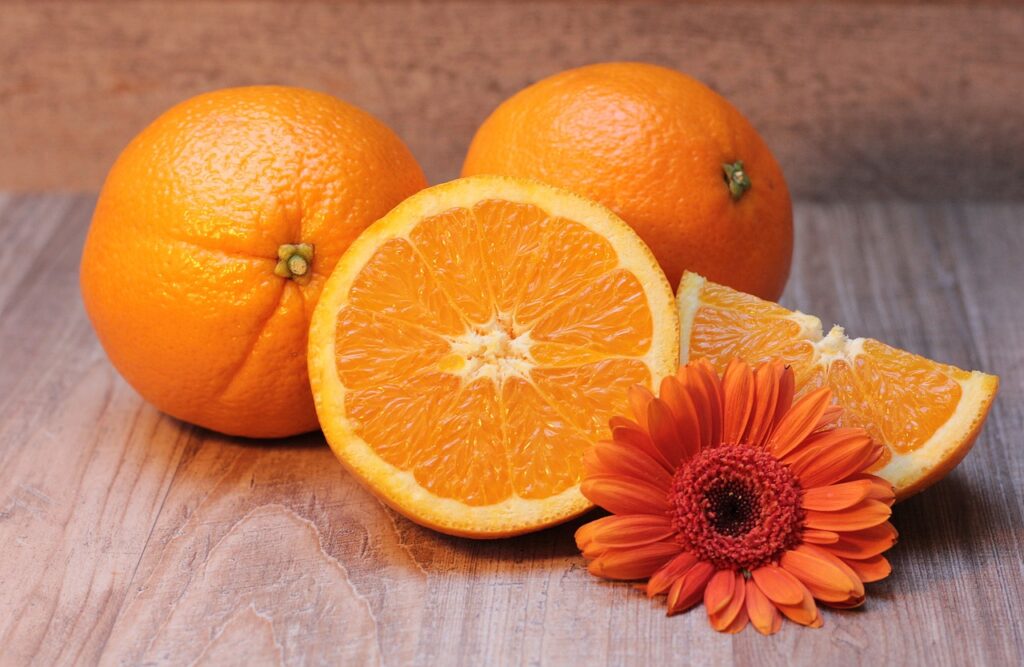
Somehow, somewhere, some scientist figured out that vitamin C increases your body’s absorption rate of vegan, plant-based iron (aka “non-heme iron”).
When I learned about this, I immediately included vitamin C alongside every one of my meals, since each meal I ate had some sort of protein and, thus, some sort of iron.
This turned into me eating an orange 3 times a day–for breakfast, lunch, and dinner–everyday, since that was the easiest and most abundant form of vitamin C I could think of. I wanted to maximize my body’s absorption rate of non-heme, plant-based iron, and what better way to do that than to basically eat >50% of my daily requirement of vitamin C, 3 times a day?
I’ve since cut back on my orange intake and have turned to other foods for itamin C. Here’s where I got my vitamin C in yesterday’s meals alone:
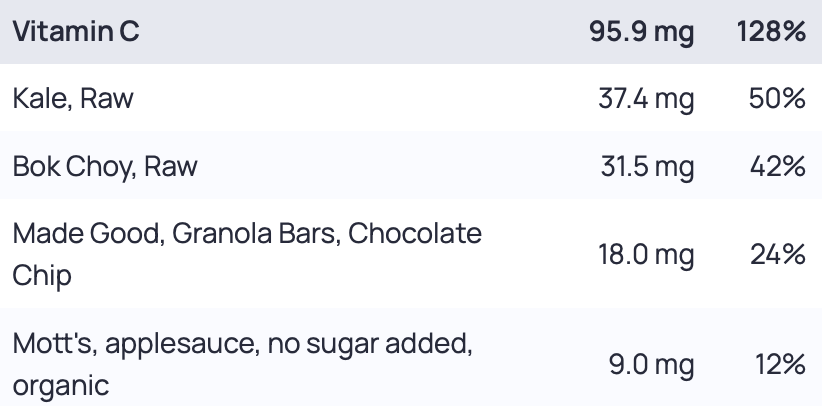
Basically, I now rely heavily on vegetables for vitamin C, with kale and bok choy being my favorite sources, as they don’t give me any gas or bloat (like other calcium-rich sources of vegetables).
I pair my vegan protein oatmeal bowl with kale for breakfast, and my tofu and bean lunches and dinners with bok choy. The applesauce and granola bar snacks also add a small boost in vitamin C throughout the day.
If you are not super gung-ho about eating all of these vegetables, then any citrus fruit will do. I used to eat citrus fruits like oranges, pineapples, and cantaloup alongside my high-protein/high-iron meals. You can also sprinkle in some bell peppers into your meals, as just 60 grams of raw bell pepper contains 100% of the vitamin C you need in a day.
#3: Vitamin B12
Vitamin B12 is one of those vitamins that 100% do not exist naturally in vegan foods. You can only get Vitamin B12 naturally from animal-sources like beef, liver and kidneys, seafood, and eggs.
Luckily, the vegan food industry recognizes this and enriches or fortifies their foods with vitamin B12. This is how I am able to get well over the daily recommended value of vitamin B12 in a day without popping a single supplement pill.
There are lots of cereals that are fortified with vitamin B12, but I generally stay away from that, since I don’t care for the added sugar in cereals, and cereal itself isn’t very satiating for me.
So for me, I rely primarily on 2 vegan foods for my vitamin B12: soy milk and nutritional yeast.

Yeast and soy itself do not have any vitamin B12 content. As I said above, there are no naturally occurring vegan sources of this vitamin.
Nonetheless, these two food items are enriched and fortified with enough vitamin B12 to meet (and exceed) my minimum daily nutritional requirements.
#4: Calcium
Typical sources of calcium in non-vegan diets are usually found in dairy products.
I am talking about milk, yogurt, and cheese.
For me, personally, it was easy to transition to vegan sources of calcium, since I am lactose intolerant, and stopped eating dairy products a long time ago.
Nonetheless, when I made the transition to a vegan diet, I did become a little bit more aware of how much calcium I was getting, and I consciously incorporated more calcium rich foods into my diet to ensure that I had the calcium I needed to support my bone health, especially since osteoporosis runs in my family.
Here’s how I get almost 100% of the calcium I need in a day through a vegan diet alone. Below is a screenshot of yesterday’s top 10 vegan-sources of calcium after a full day of eating:
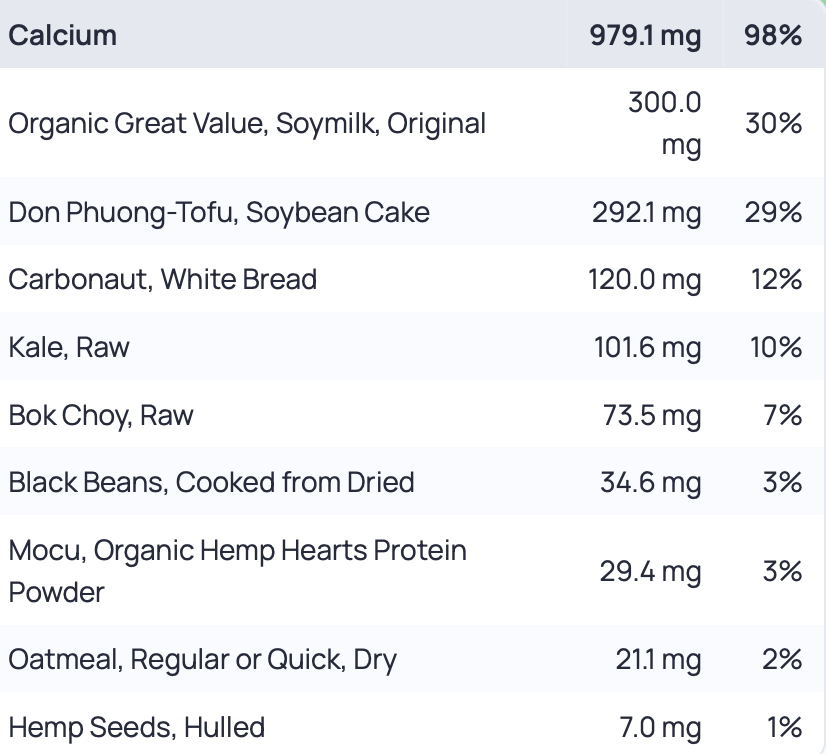
Soy milk is my everyday #1 source of calcium. Soy milk by itself is not super calcium rich, but the soy milk that I buy is always enriched with calcium (as well as other vitamins).
In general, my top vegan sources of calcium are:
- Soy milk
- Beans (via black beans and tofu, the latter of which is derived from the edamame bean)
- vegetables
- hemp seeds (in both whole seed and protein powdered form)
That friend is vitamin D.
#5: Vitamin D
Vitamin D is primarily found in seafood and eggs, so I went on a treasure hunt looking for different sources of vitamin D in vegan foods.
Luckily, non-dairy milk (like the soy milk I drink) is usually enriched and fortified with vitamin D, so I get a good amount of vitamin D from that.
There are also plenty of vegan protein powders and cereals that have vitamin D added to it.
But I was adamant about finding vegan sources of vitamin D that were not enriched or fortified, and I found them in the form of mushrooms (that are specifically high in vitamin D), MadeGood granola bars, and Ocean’s Halo broths.
These 3 vegan sources of vitamin D don’t have any added vitamins or minerals and are the closest natural sources of vitamin D I could find.
On a typical day, I’ll always make sure to have a full glass of soy milk (enriched with calcium and vitamin D) and a MadeGood granola bar to get almost 100% of my daily required vitamin D each day.

These 2 sources of vitamin D are sufficient for what I need, since my vitamin D levels are “optimal”.
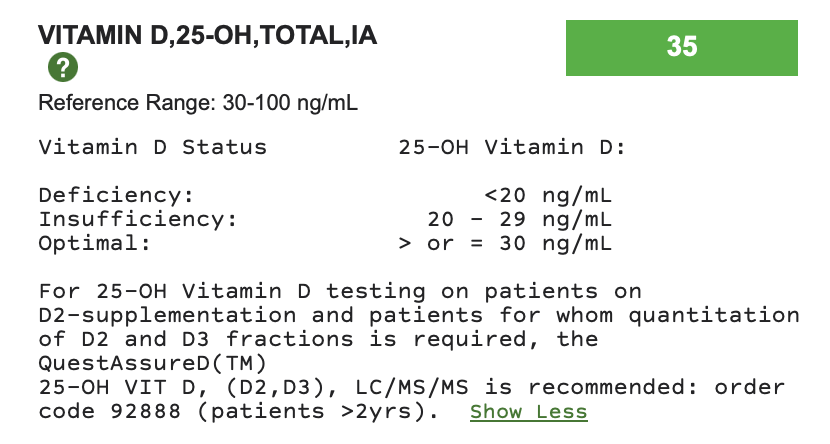
The takeaway
A vegan diet is a form of an “elimination diet”, which can easily lead to an elimination of nutrients.
But it doesn’t have to be that way, so long as you are conscious about your food choices and aware of what foods add what nutritional value to your diet.
I highly suggest that if you are interested in exploring a vegan diet, or if you are already on a vegan diet, that you monitor and track the foods you are eating to ensure that you are getting all of the vitamins, minerals and macronutrients that you need to support your body’s health.
Use nutrition tracking tools like Cronometer or MyFitnessPal and get regular blood tests to monitor your body’s ability to ingest and process your vegan sources of nutrients.
